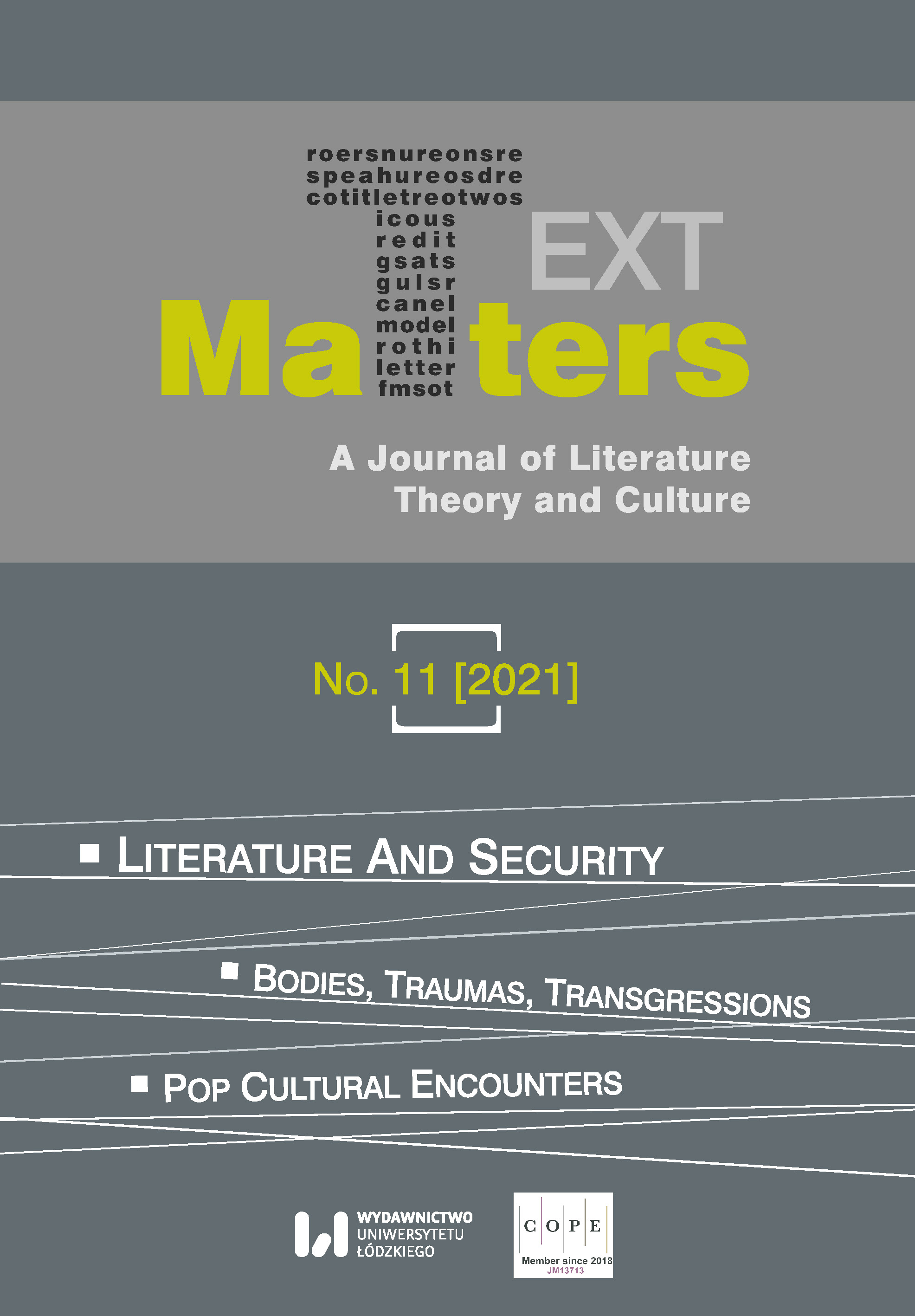Mesmerization with the Lights On: Poe’s “The Facts in the Case of M. Valdemar”
DOI:
https://doi.org/10.18778/2083-2931.11.22Keywords:
Edgar Allan Poe, the Sublime, Jacques Lacan, Immanuel Kant, Slavoj ŽižekAbstract
Edgar Allan Poe’s eerie short story “The Facts in the Case of M. Valdemar” is a particularly noteworthy example of the sublime, a psychological state in which one is overwhelmed by the magnitude of that which is perceived by the mind. Valdemar exemplifies the sublime in that his death has somehow been suspended in time because he was under hypnosis as part of a medical experiment at the moment of his passing. However, the story also draws particular attention to the means by which insight into the nature of death is acquired by the hypnotist who narrates the story. For a more comprehensive understanding of the sublime experience, one may turn to the psychoanalytic theory of Jacques Lacan and the postmodernist work of Slavoj Žižek, which lead to the conclusion that the dramatic chain of events in “Valdemar” is an example of the sliding signifier, and, moreover, that the instability of the signifier may explain the sublime effect.
Downloads
References
Adorno, Theodor. Aesthetic Theory. Translated by Robert Hullot-Kentor. Bloomsbury, 1997.
Google Scholar
Barthes, Roland. “Textual Analysis of a Tale by Edgar Allan Poe.” Translated by Donald G. Marshall. Poe Studies, vol. 10, no. 1, 1977, pp. 1–12. The Edgar Allan Poe Society of Baltimore, http://www.eapoe.org/pstudies/ps1970/p1977101.htm, accessed 28 Aug. 2020. https://doi.org/10.1111/j.1754-6095.1977.tb00029.x
Google Scholar
DOI: https://doi.org/10.1111/j.1754-6095.1977.tb00029.x
Derrida, Jacques. Speech and Phenomena. Translated by David B. Allison. Northwestern UP, 1979.
Google Scholar
Homer, Sean. Jacques Lacan. Routledge, 2005. https://doi.org/10.4324/9780203347232
Google Scholar
DOI: https://doi.org/10.4324/9780203347232
Kant, Immanuel. Critique of Judgement. Translated by James Creed Meredith. Oxford UP, 2007.
Google Scholar
Lacan, Jacques. “Seminar on ‘The Purloined Letter.’” Écrits, translated by Bruce Fink, W. W. Norton, 2006, pp. 6–48.
Google Scholar
Lacan, Jacques. “The Instance of the Letter in the Unconscious.” Écrits, translated by Bruce Fink, W. W. Norton, 2006, pp. 412–41.
Google Scholar
Lacan, Jacques. “The Mirror Stage as Formative of the I Function.” Écrits, translated by Bruce Fink, W. W. Norton, 2006, pp. 75–81.
Google Scholar
Lacan, Jacques. “The Situation of Psychoanalysis and the Training of Psychoanalysts in 1956.” Écrits, translated by Bruce Fink, W. W. Norton, 2006, pp. 384–411.
Google Scholar
Poe, Edgar Allan. “The Facts in the Case of M. Valdemar.” The Collected Works of Edgar Allan Poe Volume III: Tales and Sketches 1843–1849, edited by Thomas Ollive Mabbott, Harvard UP, 1978, pp. 1228–44. The Edgar Allan Poe Society of Baltimore, http://www.eapoe.org/works/mabbott/tom3t027.htm accessed 28 Aug. 2020.
Google Scholar
Poe, Edgar Allan. “The Philosophy of Composition.” Graham’s Magazine, vol. 28, no. 4, 1846, pp. 163–67. The Edgar Allan Poe Society of Baltimore, http://www.eapoe.org/works/essays/philcomp.htm accessed 28 Aug. 2020.
Google Scholar
Shaw, Philip. The Sublime. Routledge, 2006. https://doi.org/10.4324/9780203962732
Google Scholar
DOI: https://doi.org/10.4324/9780203962732
Shen, Dan. “Edgar Allan Poe’s Aesthetic Theory, the Insanity Debate, and the Ethically Oriented Dynamics of ‘The Tell-Tale Heart.’” Nineteenth-Century Literature, vol. 63, no. 3, 2008, pp. 321–45. https://doi.org/10.1525/ncl.2008.63.3.321
Google Scholar
DOI: https://doi.org/10.1525/ncl.2008.63.3.321
Žižek, Slavoj. The Sublime Object of Ideology. Verso, 1989.
Google Scholar
Published
How to Cite
Issue
Section
License

This work is licensed under a Creative Commons Attribution-NonCommercial-NoDerivatives 4.0 International License.













